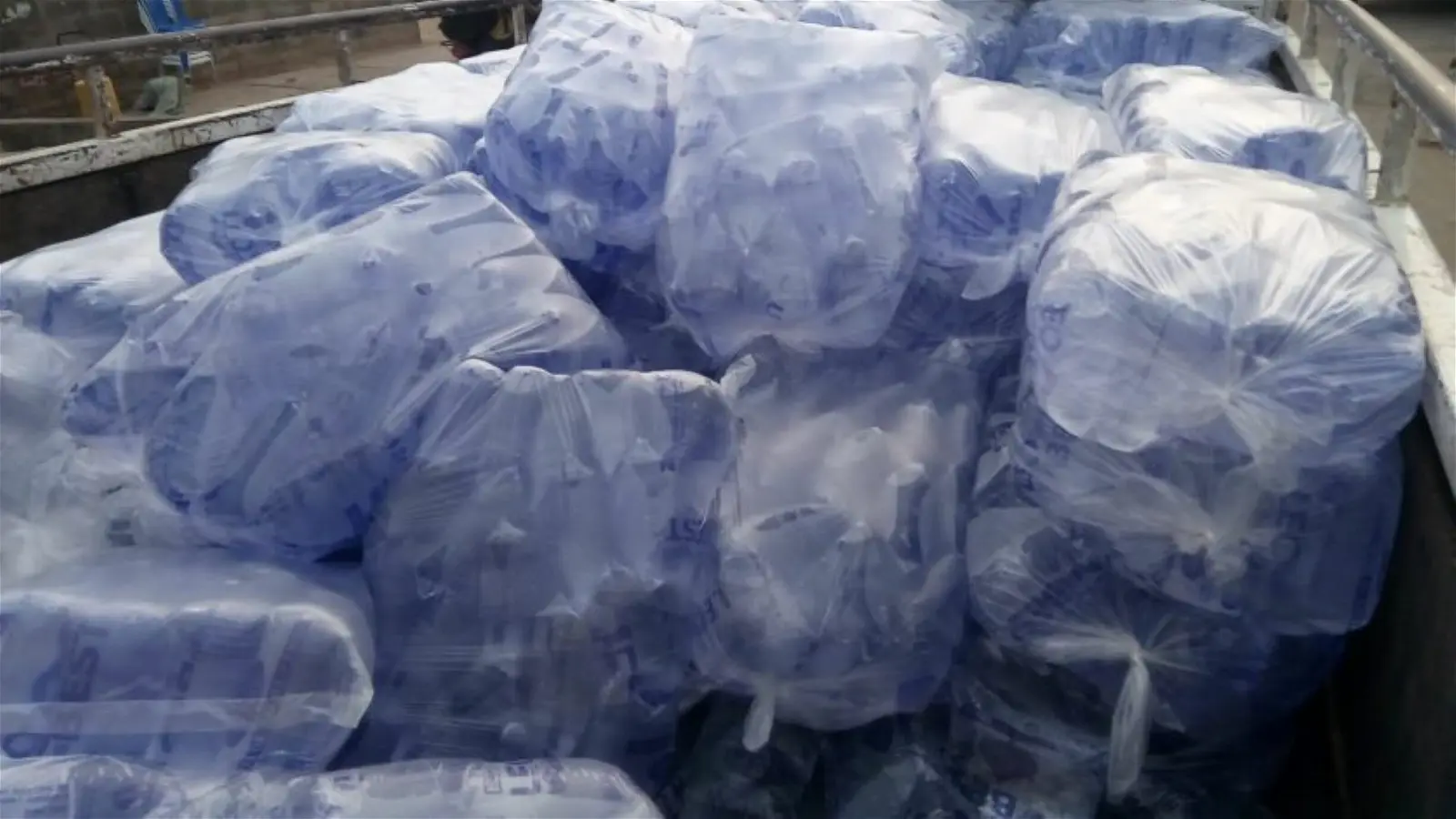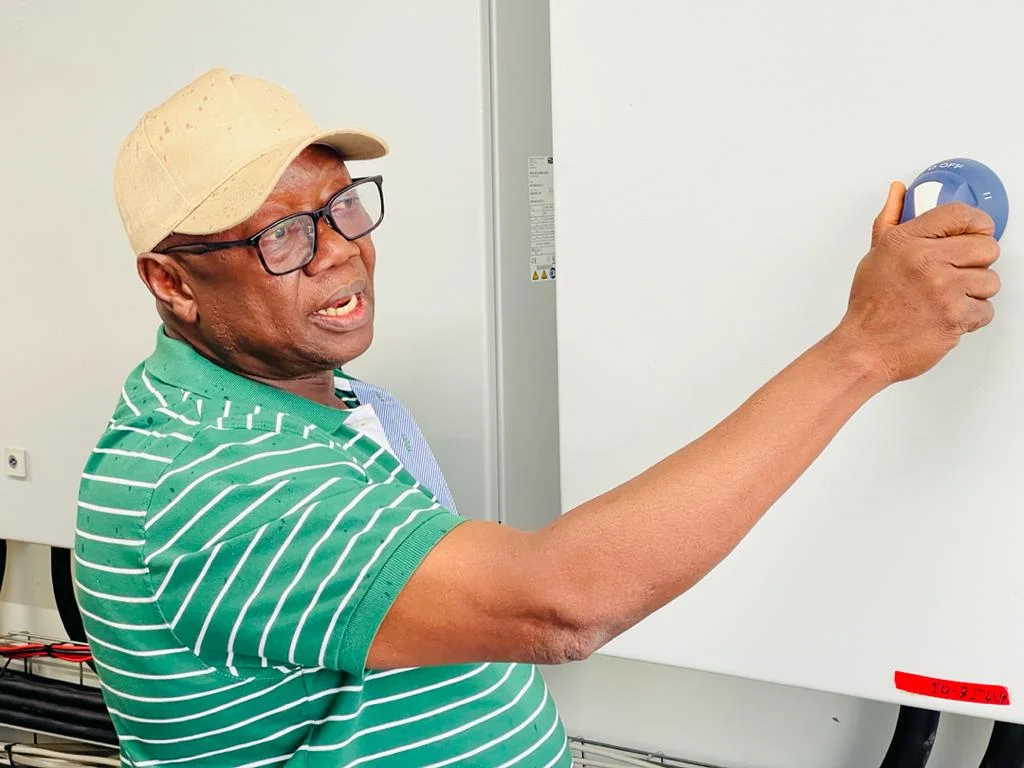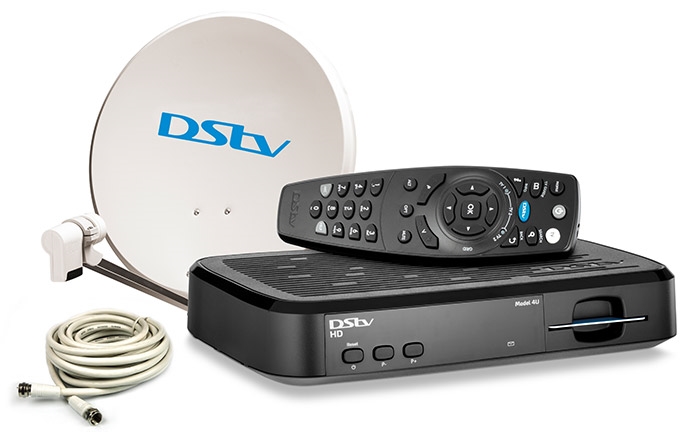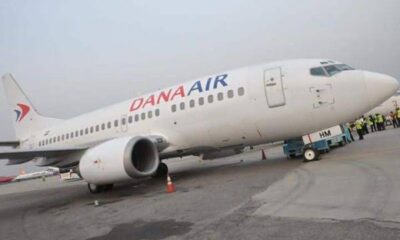Business
NAFDAC seals unregistered water-packaging companies in Ogun

The National Agency for Food and Drug Administration and Control (NAFDAC) has sealed two unregistered water-packaging companies operating without approval in Ota, Ogun State.
Mr. Philip Benu, the State Coordinator of NAFDAC, Ogun 2 Office, Ota, disclosed this to newsmen today following a targeted enforcement operation. The companies were found to violate NAFDAC’s registration requirements.
The raid was conducted as part of routine inspections by regulatory officers from the Ogun 2 office in Ota.
According to Benu, the facilities of the two companies were sealed with NAFDAC seals, and the companies were summoned to the NAFDAC office for further scrutiny after being discovered to be operating without approval earlier in the year.
Despite being allowed to cooperate, both companies failed to respond to NAFDAC’s invitations and even removed the seals placed on their premises, indicating their non-compliance with regulatory directives.
Benu highlighted that the companies resumed production using fake NAFDAC registration numbers in unhygienic conditions, a violation of health and safety standards.
He emphasized that compliance with NAFDAC regulations is essential for ensuring the safety and quality of packaged products.
He further explained that obtaining a NAFDAC number requires meeting specific facility requirements and passing laboratory tests conducted by NAFDAC.
However, some producers circumvent these regulations by operating in substandard facilities without proper approval.
As a consequence of their actions, both companies have been prohibited from further production, and their production machinery has been confiscated by NAFDAC.
Benu reiterated that such enforcement efforts would continue, urging illegal producers to register with NAFDAC to avoid legal repercussions.
NAFDAC remains vigilant, with ongoing surveillance to apprehend illegal producers operating without NAFDAC approval.
Benu warned that those caught engaging in such practices would face legal consequences, underscoring NAFDAC’s commitment to upholding regulatory standards and safeguarding public health.
Business
Sierra Leone energy minister, Kanja Sesay resigns over electricity crisis

Kanja Sesay, Sierra Leone’s minister of energy, has resigned after weeks of electricity crisis in the West African nation.
According to BBC, in his resignation letter on Friday, Sesay said he took full responsibility for the crisis.
In a statement, the government said the energy ministry has been placed under the direct supervision of President Julius Maada Bio, who will be assisted by two other officials.
Sesay’s resignation came hours after the government paid $18.5 million to two power providers, Turkish Karpowership and Transco-CLSG group.
Sierra Leone owed the two producers $40 million.
After two months of outages, power was restored in Freetown after the payments were announced.
Since mid-April, Freetown and the cities of Bo, Kenema and Koidu have experienced multi-day stretches without electricity.
Karpowership confirmed the payment in a statement.
“We are pleased to confirm that the electricity supply has returned to full capacity in Freetown,” the statement reads.
The company has been supplying electricity to Sierra Leone since 2018 from a floating offshore unit, but it had reduced its capacity from 65 megawatts to just five in recent months due to payment issues.
It had previously cut supplies to Sierra Leone in September over unpaid bills.
In October, it briefly cut power to Guinea-Bissau, saying it had been left with no option “following a protracted period of non-payment”.
Business
Naira depreciates in parallel market, official window

The naira depreciated to N1,320 per dollar at the parallel section of the foreign exchange (FX) market on Friday.
The current FX rate signifies a decline of 1.54 percent from N1,300/$ traded on April 24.
Currency traders, known as bureau de change (BDC) operators, quoted the buying rate at N1,260 and the selling price at N1,320 — leaving a profit margin of N60.
At the official window, the local currency depreciated by 2.24 percent to N1,339.23 against the dollar on Friday, from N1,309.88 on April 25.
According to FMDQ Exchange, a platform that oversees the Nigerian Autonomous Foreign Exchange Market (NAFEM), also known as the official window, during trading hours, a dollar was sold as high as N1,410 and at a low rate of N1,051.
Meanwhile, on April 24, Emeka Obegolu, president, Abuja Chamber of Commerce and Industry (ACCI), asked the federal government to develop policies that will strengthen the naira and foster economic growth in Nigeria.
“We are here to brainstorm innovative strategies for strengthening the naira, assessing progress, identifying challenges, and formulating practical solutions,” Obegolu said.
He pledged that the recommendations from the roundtable will be diligently conveyed to the relevant authorities for implementation.
Business
DSTV price hike: Five alternatives Nigerians are opting for

Broadcasting company, Multichoice, on Wednesday, increased the prices of its offerings in Nigeria four months after its last increment.
The company reviewed prices in its packages across the board. The new prices will take effect from May 1, 2024.
With the latest price hike, the DStv Premium package increased from N29,500 to N37,000. Similarly, the DStv Compact+ went up from N19,800 to N25,000 while the Compact package increased from N12,500 to N15,700.
The Comfam package moved from N7,400 to N9,300. Yanga package moved up from 4,200 to N5,100 while Padi package increased from N2,950 to N3,600. HDPVR was increased from N4,000 to N5,000, the Access Fees package from N4,000 to N5,000, and XtraView moved from N4,000 to N5,000.
Meanwhile, the Gotv Supa+ package moved from N12,500 to N15,700, Supa package from N7,600 to N9,600, and Max package from N5,700 to N7,200.
While the Jolli package was increased from N3,950 to N4,850, the Jinja package moved from N2,700 to N3,300, and Smallie package from N1,300 to N1,575.
The upward review of the broadcasting company’s offerings has stirred mixed reactions online, with social media users arguing that the increment was coming at the wrong time.
Reacting to the hike on X, a social media user, Kelvin Odanz, who tweets as @MrOdanz, asked Nigerians to explore other options rather than complain about the increase.
He wrote, “If you can afford stable Internet, there are so many other services you can use aside from DSTV. For football and other entertainment. Because aside football, nothing dey DSTV. Explore these options and stop whining.
“I am not even a fan of DSTV one bit. Aside from football, there’s basically nothing of note there. But this whole outrage over them hiking their price is quite hypocritical. Everyone has hiked the price of their goods/services. Even small businesses. So why shouldn’t DSTV do same?
Sharing his sentiment, @Letter_to_Jack said, “Electricity tariffs increased: Small rage. Cement prices through the roof: Small rage. Diesel to 1700/L at a point: Small rage. Indomie at 13k = small rage. Dstv increases prices: OUTRAGE! At this point, you’d think DSTV/MultiChoice is the only trigger Nigerians have.”
On his part, David Ofor, said while the price increase was understandable, it was important for the broadcasting company to justify it by offering value for the money.
He wrote, “I understand the fact that Multichoice is operating in a free market economy, and Govt has limited control mechanism in such. What people are complaining about is not primarily the price hike, but, the static content being provided, DSTV and GoTV have not improved on their services despite the plethora of increments over the years.
“They should justify the payments made, more so, why are they increasing now that Diesel prices are coming down and Naira is strengthening?”
While the debate continues, we look at other alternatives Nigerians can consider for their pleasure.
DSTV — Despite the mixed reactions that greeted the increase, many Nigerians will continue with the broadcasting company. With several increments, Multichoice still boasts customers’ loyalty among other alternatives offering the same services.
Many households prefer DStv and GOtv as their source of entertainment. This may not be unconnected to the company’s premium in international sports broadcasting, particularly European leagues and UEFA Champions League.
When contacted on Friday, the spokesperson for Multichoice Nigeria, Caroline Oghuma, said despite the hike, subscribers can still enjoy their current price for the next year with a “Price Lock” incentive.
“With Price Lock, you can continue to pay your current subscription for up to a year, if you pay before your due date, each month,” Oghuma told our correspondent.
Star Times — The company, a major player in the Asian country’s Pay-TV market, has a considerable market share in some African countries, including Nigeria and Kenya.
Startimes has channels that include news, music, movies, and football channels, including exclusive rights to some football content.
-

 News4 days ago
News4 days agoFAAN reopens Lagos airport runway after Dana Air incident
-

 Business1 week ago
Business1 week agoElon Musk threatens to suspend X accounts doing engagement farming
-

 Celebrities1 week ago
Celebrities1 week agoNickie Dabarbie calls out Skiibii for attempting to use her for money rituals (Video)
-

 Entertainment1 week ago
Entertainment1 week agoSkiibii’s ex-lover DJ Dorcas Fapson reacts after Nickie DaBarbie accused singer of engaging in money rituals
-

 Celebrities1 week ago
Celebrities1 week agoRihanna seeks Ayra Starr collaboration — after working with Tems
-

 World1 week ago
World1 week agoIsrael launches counterattack on Iran
-

 Politics1 week ago
Politics1 week ago‘You’re not following procedure’ — Drama as Ondo guber hopeful confronts Ododo over APC primary
-

 Sports1 week ago
Sports1 week agoJuventus ordered to pay Ronaldo €9.7m unpaid salaries


















